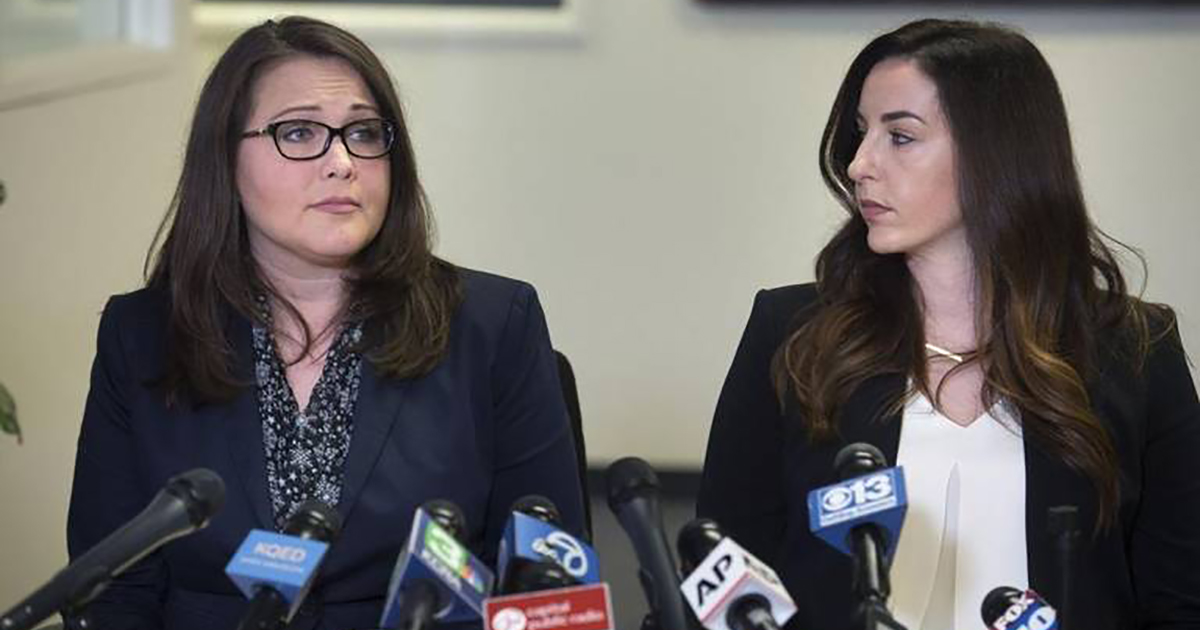ERA Supports Sexual Assault Survivor Sued for Defamation by Former CA Lawmaker
June 22. 2020
For Immediate Release
Jun 22, 2020
Media Contact
Nazirah Ahmad
[email protected]

Today Equal Rights Advocates, represented by law firm Reed Smith, filed an amicus brief in an appeal to Dababneh v. Lopez supporting Pamela Lopez, a Sacramento lobbyist who was sexually assaulted by former California state Assemblymember Matt Dababneh. Dababneh, who resigned in 2018 following multiple allegations of sexual harassment and assault, is now suing Lopez for defamation, represented by Harvey Weinstein attorney Patricia Glaser.
Lopez was one of multiple women to come forward with allegations of sexual misconduct by Dababneh in 2018. A California Assembly Rules committee conducted an investigation which ultimately substantiated Lopez’s allegations and rejected Dababneh’s claim that the investigation was biased.
If victims worry that they will be sued for defamation as long as the assailant or harasser denies the incident occurred, it may keep many from coming forward at all.— Brenda Adams, ERA Senior Counsel
Today’s amicus brief supports Lopez’s appeal to the Third District appellate court, challenging a Sacramento County Superior Court’s refusal to dismiss Dababneh’s defamation lawsuit under California’s anti-SLAPP statute, which intends to gives defendants sued in “Strategic Lawsuits Against Public Participation” an expeditious way to end lawsuits that have been brought as a way to chill their exercise of free speech, particularly in cases of sexual assault and sexual harassment.
Victim advocates have seen an increasing trend over the past few years of filed or threatened defamation lawsuits being used to intimidate survivors of sexual assault and harassment into silence. Our amicus brief urges the court to consider the negative precedent that could be set by allowing Dababneh’s argument—that he can establish both malicious intent and falsity by simply denying the sexual assault occurred—to stand. In defamation lawsuits involving public figures, both falsity and malice must be proven early for the case to proceed to trial.
“This precedent would only serve to further chill reports of sexual harassment and assault, which are already vastly underreported,” said Brenda Adams, Senior Counsel at Equal Rights Advocates. “If victims worry that they will be sued for defamation as long as the assailant or harasser denies the incident occurred, it may keep many from coming forward at all.”
Our amicus brief to the court requests that, if Dababneh is permitted to show malice simply by claiming that Lopez’s statement was false, he should be required to show falsity by the higher standard of evidence (“clear and convincing”) applicable to malice.
A society that allows and encourages victims to report sexual assault without fear of being disbelieved or retaliated against allows the real prevalence of the problem to surface, ultimately resulting in action that makes our workplaces, schools, and society safer for everyone.— Brenda Adams, Senior Counsel
As noted in the amicus brief, if the trial court’s ruling on the malice standard in this case is upheld, it could mean that any future public figure plaintiff in defamation suits could proceed to trial simply by denying the fact that the incident took place.
Reed Smith appellate attorney Paul Fogel points out, “The Supreme Court required public figures in defamation cases to prove actual malice by clear and convincing proof to ensure that speech about their conduct remains robust and to protect less powerful individuals who seek to hold public figures accountable for their misconduct. The anti-SLAPP statute furthers these goals, and trial courts should scrutinize allegations of defamation to ensure that these goals are not compromised.”
When survivors and victims speak out about the sexual harm they endured, other victims are more likely to come forward, the amicus brief argues.
“As was proven by the Me Too movement, visibility is key to reducing shame and stigma,” Brenda Adams said. “A society that allows and encourages victims to report sexual assault without fear of being disbelieved or retaliated against allows the real prevalence of the problem to surface, ultimately resulting in action that makes our workplaces, schools, and society safer for everyone.”
The Court of Appeal will likely schedule oral argument in the appeal sometime in 2021, with a decision expected in 2021 or 2022. California Anti-SLAPP Project and Levy Vinick Burrell Hyams LLP are representing Lopez in her appeal.
Stay Connected & Take Action
- Get the Latest News & Information Sign up for Email Updates
- Sign Up for Action Alerts Join the Action Team
- Follow Us
